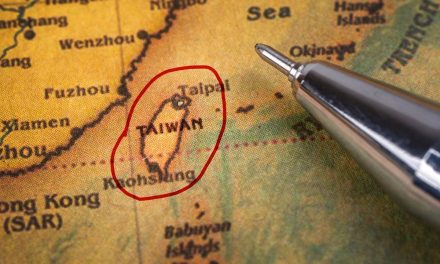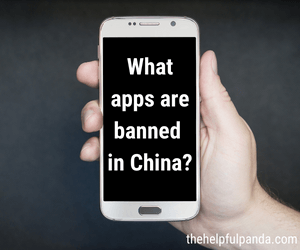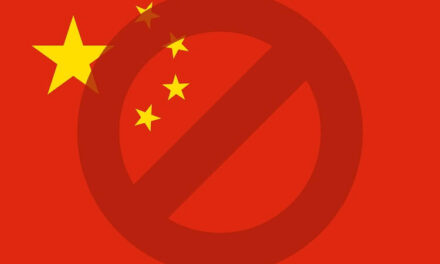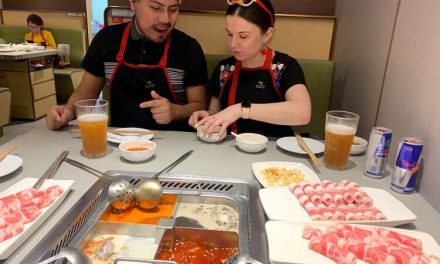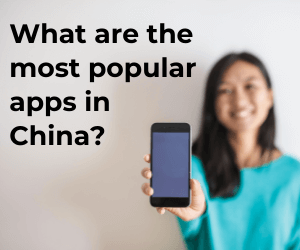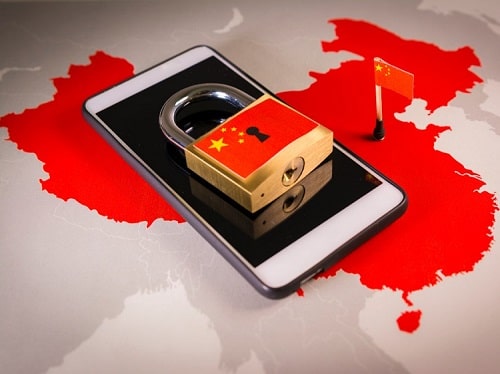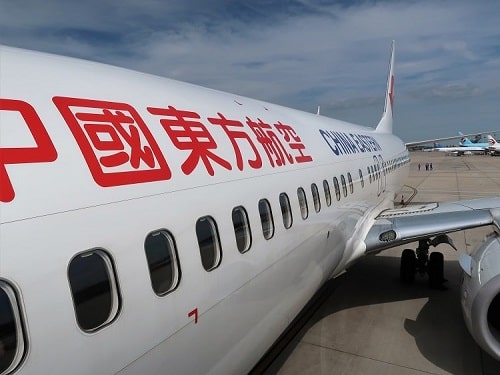Love is always in the air in China.
I love love. I think every day is a great opportunity to tell those you care about just how much you love them.
I fully embrace Valentine’s Day as a wonderful celebration, despite the widely complained about commercial ties.
I guess for the romantic in me, China might be the perfect country. It’s home to not one, not two, not three, not four, but five Valentine’s Days per year!
Or, six if you include Single’s Day. But isn’t that like the ultimate anti-Valentine’s?
Naturally, each Chinese Valentine’s Day has its own story and today I’ll take you through them.
1. Lantern Festival

Romantic decorations and riddles at my work. Image supplied by Olivia Seaton-Hill.
- Chinese name: 元宵节 (Yuánxiāo jié)
- Date: 15th day of the lunar year
In ancient China, single women were rarely given opportunities to meet potential partners or go on dates. Lantern Festival, a celebration marking the end of Spring Festival (or Chinese New Year), brought communities together into the street.
It also gave young ladies a chance to scope out potential suitors.
And this key point is the most likely reason why Lantern Festival is considered to be one of China’s numerous Valentine’s Days.
Modern celebrations

Wall of Wishes. Image supplied by Olivia Seaton-Hill.

My wishes! Image supplied by Olivia Seaton-Hill.
From my experience living in Shenzhen, Lantern Festival is more like a celebration of love within your family or wider community.
People make wishes for the year ahead and eat sticky rice balls called ‘yuan xiao’, or ‘tang yuan’ depending on where in China you’re located.
Each year, my company throws a big party for Lantern Festival. We’re all given tang yuan to eat (as we’re in the south), rice wine to drink, riddles to solve and wishes to make.
We even get to leave work an hour early! I think the point is to spend time with your family and wrap up Spring Festival celebrations, but I dipped out and made it just in time to catch happy hour.
People will generally wish for things like health and wealth for them and their loved ones. Y’know, classic wishes.
Truth be told, I’m always a bit disappointed to not see anybody wishing for their sports team to win the playoffs or for Taylor Swift to drop a new album, but each to their own.
It’s also worth mentioning that even though Lantern Festival is part of Spring Festival, it’s not one of the Chinese national holidays.
It’s just a romantic holiday.
The date shifts
The specific date of the Lantern Festival is actually dictated by the lunar Chinese calendar. This means its date on the Gregorian calendar varies each year.
In 2022, it was the day after traditional Valentine’s Day. A double dose of love, if you will. Urgh, I was in heaven!
And, not only does the date shift, the day is celebrated in different ways by the Chinese diaspora around the world.
For instance, in Malaysia, where Chinese Valentines Day is called Chap Goh Mei, the locals throw oranges into the sea in hope of finding love.
2. Traditional Valentine’s Day

My hotel room in Sanya was totally decked out for Western Valentine’s Day! Image supplied by Olivia Seaton-Hill.
- Chinese name: 情人节 (Qíngrén jié)
- Date: February 14
Let’s stop off on some common ground for the next day of love in China with regular, plain old Valentine’s Day.
I’m sure you don’t need me to tell you too much about this one. It’s a day for ‘qíngrén’ (lovers) all over the world!
You might see the number 1314 a lot around Valentine’s Day in China. It’s one of the special Chinese lucky numbers combinations.
As a Scot, I know 1314 to be the year we gained our independence from the English, but in China it is has a more romantic vibe.
1-3-1-4 in Mandarin is yī sān yī sì. Chinese netizens adopted this numeronym to mean ‘forever’.This is because when said aloud, the Chinese phrase yī shēng yī shì, an idiom meaning forever, sounds similar to 1314.
Aside from that, Valentine’s Day in China is celebrated much like it is in western countries.
Restaurants and florists hike up their prices, delivery drivers are swimming in roses, one lucky lady in the office will inevitably receive an extremely over-the-top bouquet and all the other ladies will “ooh” and “aah” as they snap pictures for their WeChat moments.
Same old, same old really. Next!
3. White Valentine’s Day
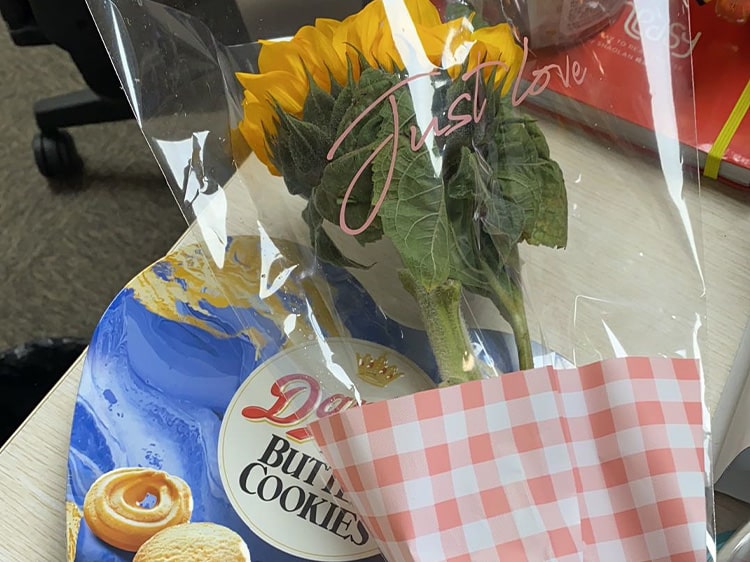
My perfect gift for White Valentine’s Day. Image supplied by Olivia Seaton-Hill.
- Chinese name: 白色情人节 (Báisè qíngrén jié)
- Date: March 14
Just one month on, we’re ready for our third pit stop in lover town. Phew, it’s exhausting being loved up!
This one is celebrated in several Asian countries, with its roots seemingly stemming from Japan – including the name.
I won’t point out that part of its origin to the locals in China though or they may cancel the celebrations next year.
In China, this date is called ‘Báisè qíngrén jié’ which literally translates to White Valentine’s Day.
Traditionally, you would return the gesture of gift-giving to whomever gave you a Valentine’s gift the month before.
Some sources suggest that the monetary value of the present should be more than double that of whatever gift you received, but I don’t think it’s a hard rule.
Typical gifts that I’ve received for this date are candies, chocolates and cakes.
These were once homemade gifts. Although here in China now, they are commonly store-bought at an inflated price to suit the demands of buyers.
Arguably, March 14th is not as big a deal as February 14th, but many people will still exchange small gifts and some stores will run promotions.
It’s not necessarily just for lovebirds either. Sometimes tokens of appreciation are shared between friends too!
I suppose it’s also a good opportunity to make up for it if you fluffed up traditional Valentine’s Day the month prior.
Having lived through a few White Valentine’s Days in China, I will say that if you forget this one, it’s not too big a deal.
4. 520
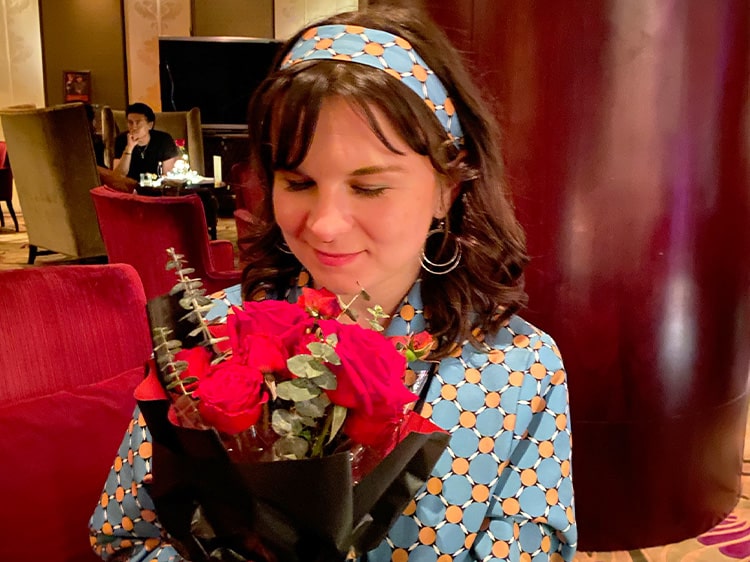
520 is yet another Chinese Valentine’s Day. Image supplied by Olivia Seaton-Hill.
- Chinese name: 五二零节 (Wǔ’èrlíng jié)
- Date: May 20
This is not to be confused with the US celebration, 420. No, no, no.
‘wǔ’, ‘èr’ and ‘líng’ are the Mandarin words for ‘five’, ‘two’ and ‘zero’, respectively. And, ‘Wǒ ài nǐ’ is the Chinese phrase for ‘I love you’.
It’s a bit of a stretch, but the two phrases sound similar and so May 20th became synonymous with love in China.
520 is definitely a modern Chinese Valentine’s Day and is more popular among young people than it is with older generations.
Celebrations take a similar form to those of February 14th (flowers, chocolates etc.) but on a much smaller scale.
5. Qixi Festival
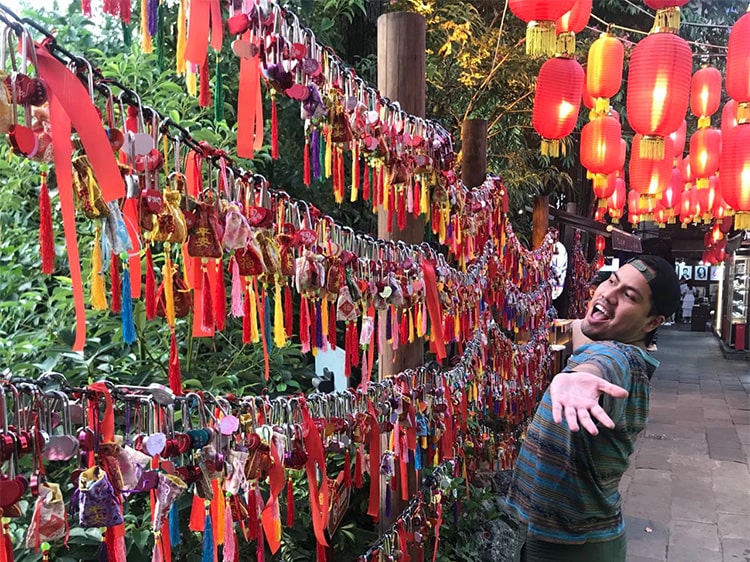
Double Seven Festival is the ultimate Chinese Valentine’s Day. Image supplied by Olivia Seaton-Hill.
- Chinese name: 七夕节 (Qīxì jié)
- Date: 7th day of the 7th lunar month
Qixi Festival, or Double Seventh Festival, is the ultimate Chinese Valentine’s Day. It has the most romantic tale behind it.
In ancient times, the Chinese worshipped the stars.
In particular, Niulang and Zhinu were stars from opposite sides of the galaxy who loved each other but could only reunite once a year on the seventh night of the seventh lunar month.
Over the years, the tale was elaborated upon. Niulang and Zhinu were embodied by a young cowherd and weaver girl respectively.
I should mention that Zhinu’s expertise was in weaving clouds and the two still did not live on planet earth.
A spanner in the works

Star-crossed lovers or a modern-day Zhi nu and Niu lang? Image supplied by Olivia Seaton-Hill.
Anyway, in a classic love story move, Zhinu’s parents disapproved of her relationship with Niulang to the extent that they actually exiled him to earth.
During a visit to Earth, Zhinu decided to stay with Niulang and the pair went on to have two children together.
Of course, Zhinu’s mother eventually came to earth enraged by her daughter’s disobedience and dragged her back to the heavens, with Niulang and the kids in hot pursuit.
The mother then created a river between Niulang and Zhinu to separate them. That river went on to be known as the Milky Way.
The lovers cried and cried, causing a flock of magpies (I don’t know either) to take pity and form a bridge for them to cross the river of stars.
Zhinu’s mother was ultimately touched by all the love in the air and decided to allow the children, and Niulang, to stay in heaven. Just not actually with Zhinu herself.
However, the family are allowed to reunite, but only once a year on the seventh day of the seventh lunar month, with the help of the magpies of course.
Confused?
Me too! But it’s a fun, if not chaotic story.
I do feel that Zhinu’s mother takes the role of evil mother-in-law to the extreme, but don’t you just love a good villain?
Qixi Festival is celebrated across mainland China and even in Hong Kong.
6. Single’s Day

True love is a beach resort in Sanya, Hainan. Image supplied by Olivia Seaton-Hill.
- Chinese name: 双十一 (Shuāng shíyī)
- Date: November 11
OK, now back to modern Chinese culture.
Hailing from the UK, I know the 11th day of the 11th month to be Remembrance Day. Here in China it is something else entirely.
11/11 is Singles Day.
They do say that one is the loneliest number. And in this case, these ones represent bare sticks without branches.
‘Bare stick’ is internet slang for a bachelor in China. Someone who does not add branches to the family tree.
How do Chinese singles celebrate love?
Starting in the 1990s, singles across the nation decided that they too deserved a day in which they were showered with gifts.
If the lovebirds can have five, I agree that singles deserve at least one special day.
Without partners obligated to buy said gifts though, bachelors and bachelorettes were left to buy them for themselves.
Businesses across the country rubbed their hands gleefully before wiping yuan signs from their eyes.
More of a shopping holiday
11/11 really is China’s answer to Black Friday.
Stores, both online and physical, will run excellent promotions leading up to the day itself.
Many outlets will advertise their sales ahead of time, then only offer them on the 11th, creating massive hype around their products.
It’s a wonderful time to snap up deals on luxury items which are heavily discounted for one day only. Many locals will also bulk buy household items around this time too.
But don’t expect massive lines outside of shopping malls or customers abusing Walmart employees. As is usually the case in China, tech is king and much of the spending is done online using apps like Taobao, Pinduoduo or JD.
(You can check out the top apps used in China here.)
Still, it’s a great opportunity to hit the shopping malls and snap up deals in-person from your favorite brands.
And at the end of the day, if you can’t cuddle up to a real human being, at least you can whisper sweet nothings to your discounted Jimmy Choo’s.
All outta love?

Chinese people will go to great lengths to celebrate love during Qixi Festival. Image supplied by Olivia Seaton-Hill.
And with that, romance is over for another year in China!
I really do hope you get to experience a Chinese Valentine’s Day, or at least one of the other traditional Chinese festivals.
If you can, try to find out the history of any celebration you stumble upon during your time in China. Often, there’s a great story in there.
What’s your favorite Chinese Valentine’s Day? Let me know in the comments below. Otherwise, you might like the article I wrote about how to refer to people in China.
Keep reading
Before you head to China, get all the information you need:
Or, if you’re looking for love in China, head to this page.
Main image credit: Weidong on Shutterstock.
FAQ about Chinese Valentine’s Day
Do Chinese celebrate Valentine's Day?
They sure do! There are five special days for Chinese couples, and even one for singles. Each day is celebrated in different ways and has a different story.
When is Chinese Valentine's Day?
There are numerous days for love in China throughout the year, but the biggest Chinese Valentine's Day is Qixi Festival. This is on the 7th day of the 7th month on the Chinese lunar calendar. The date therefore changes each year.
What is Chinese Valentine's Day?
There are numerous Chinese Valentine's Days and each is celebrated in a different way. Qixi Festival, also known as Double Seven Festival, is the ultimate Chinese Valentine's Day as it has the most romantic story behind it.
How many Chinese Valentine's Days are there?
There are six special days in China that center around love – five for young couples and one for singles.



